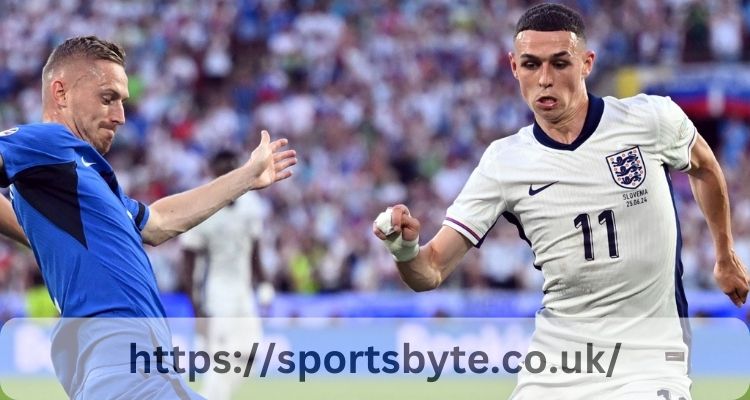Scottish and Hungarian rivalry dates back decades, each match telling its own unique tale of football competition and national pride.
Scotland will look to secure victory against Hungary after suffering their initial group loss to Germany. Here’s everything you need to know ahead of this decisive encounter.
In this article, we will discuss the high lights of Scotland National Football Team Vs Hungary National Football Team Timeline.
Scotland Starting XI:
| No. | Player | Position | Club |
|---|---|---|---|
| 1 | Angus Gunn | Goalkeeper | Norwich City |
| 2 | Anthony Ralston | Right Back | Celtic |
| 13 | Jack Hendry | Center Back | Club Brugge |
| 5 | Grant Hanley | Center Back | Blackburn Rovers |
| 6 | Scott McKenna | Left Back | Nottingham Forest |
| 3 | Callum McGregor | Midfielder | Celtic |
| 4 | Billy Gilmour | Midfielder | Chelsea |
| 8 | John McGinn | Midfielder | Aston Villa |
| 11 | Andrew Robertson | Left Midfield | Liverpool |
| 7 | Scott McTominay | Attacking Midfield | Manchester United |
| 10 | Che Adams | Striker | Southampton |
Hungary Starting XI:
| No. | Player | Position | Club |
|---|---|---|---|
| 1 | Péter Gulácsi | Goalkeeper | RB Leipzig |
| 14 | Bendegúz Bolla | Right Back | Bologna |
| 21 | Endre Botka | Center Back | Ferencváros |
| 6 | Willi Orbán | Center Back | RB Leipzig |
| 24 | Márton Dárdai | Left Back | Hertha BSC |
| 17 | Callum Styles | Midfielder | Barnsley |
| 13 | András Schäfer | Midfielder | Union Berlin |
| 11 | Milos Kerkez | Left Midfield | AZ Alkmaar |
| 20 | Roland Sallai | Attacking Midfield | SC Freiburg |
| 10 | Dominik Szoboszlai | Attacking Midfield | RB Leipzig |
| 19 | Barnabás Varga | Striker | Puskás Akadémia |
Origins
Scotland is one of the oldest international football teams, first competing officially in 1872. Although they initially competed separately from their Home Nation counterparts until joining FIFA in 1910, some iconic moments from Scotland’s history include Jock Stein’s heart attack during a World Cup qualifying match against Wales; Jimmy Greaves scoring against England at Wembley that year; and James McFadden scoring an extraordinary 40-yard wonder goal against Argentina at Parc des Princes 10 years later.
Scotland have not appeared at a World Cup finals tournament since 1998, yet they appear well-positioned to return in 2026. Manager Steve Clarke’s squad were drawn into Group D alongside Portugal and Denmark in Friday’s Fifa draw, meaning their winner from March’s two-legged Nations League A quarter-final will go directly into qualifying for Canada, Mexico and United States finals while runners-up may qualify through two rounds of play-offs.
Scotland were stunned to lose to Norway in their Euro qualifying group stage opener, yet won against Albania to recover and draw with Hungary and Iceland before defeating Faroe Islands at Hampden Park and Hungary away to secure second spot in their group and secure second-place status. However, due to his disappointing start of campaign manager Craig Levein was dismissed by Scottish FA.
The Scottish FA appointed Alex Ferguson as interim manager and under his guidance the team enjoyed a smooth journey through group stage play before defeating Australia 2-0 in a play-off win, earning them qualification for stage two qualification. Scotland then met up with Netherlands for their opening match before winning at Hampden Park before beating them on penalties; unfortunately they drew in Manchester again and thus ended up falling by away goals.
Scottish qualifying for UEFA Euro 2020 qualifying ended early, yet Scotland were able to make up ground by winning consecutive penalty shootouts against Israel and Serbia – according to SFA website records these as wins; however, most statistical resources consider such matches draws.
Scots’ rise to prominence
It was an historic event not just in Scottish football but for all of Scotland. For the first time, ordinary people were given an arena to prove they could match up intellectually with those “better”, as talented as those in other areas, and equally passionate about their community and nation. Soon tens of thousands of Scots were crowding stadiums to watch their heroes take action on a grand scale.
Scotland dominated the British Home Championship and established itself as an influential international side. They only ever lost to England twice during this period and four times to Ireland.
Scotland’s greatest achievement came during Euro 96 when they qualified for the finals by finishing second in their group behind England. One highlight was Ally McCoist scoring an exciting last-minute winner against Greece that propelled Scotland into many fans’ eyes as unofficial world champions.
During the qualifying process, several Scottish players were playing for clubs like Liverpool, Manchester City and Blackburn Rovers in England – including Paul Gascoigne and Craig Bellamy who became stars like Paul Gascoigne – which led some in England to feel that Scotland would not be allowed to compete on an equal playing field with them. This created an insular culture in which some held that belief they wouldn’t allow Scotland compete fairly with them.
Scotland entered Euro 2008 qualifying grouped alongside Ukraine, France and Italy – an extremely difficult challenge that required multiple wins for Scotland to progress to the play-off stage. But after suffering a 2-0 loss against Georgia they required victory from their final qualifying game to advance further – instead being eliminated on goal difference alone.
Scotland are in a tough group against Greece, Belarus and either Portugal or Denmark – yet a top two finish will secure qualification for the play-off stage and could bring them close to reaching a fourth World Cup tournament. While Scotland have no official fan club to help cheer them on in 2026, their next generation of players possess all of the hunger and passion needed for success.
Hungary’s resurgence
Hungary has long played in the shadow of European powers in terms of footballing prowess, but recent signs indicate they may be on the cusp of something special. Under Marco Rossi, their national side has surged forward under an arsenal of veteran and emerging talent led by midfielder Balazs Dzombic and winger Mihaly Ferencz; players that could make an impactful statement at Euro 2024.
Hungary are hoping to build on their rich legacy and write new chapters of football history by producing an outstanding showing at this year’s European Championships. After an inauspicious start, their chances remain strong of reaching the knockout rounds with three points from their remaining two matches; their match against Scotland will provide an ideal test case that could reignite excitement about their chances in Germany.
Scotland’s Euros woes continue, as Hungary takes an astonishing victory thanks to Kevin Csoboth’s late winner at Stuttgart. Although Scotland dominated possession, their Tartan Army could not find the finishing touch and remain stuck at group stage status after 12 major tournaments under Steve Clarke’s guidance.
An entertaining first half ended goalless, with both sides failing to create much in terms of meaningful chances. Callum Styles had his shot blocked while Grant Hanley’s attempt rattled the bar for Scotland; Dominik Szoboszlai sent his header over from a corner while Hungary looked dominant until Barnabas Varga collided into Angus Gunn and left him lying injured on the turf; Gunn is expected to make a full recovery soon enough from his injuries.
Cultural ties
Hungary and Scotland both seek to establish their identities within modern football, making tonight’s clash more than just about football; it represents two cultures with rich histories that want to assert themselves on an international stage. Therefore, both teams see this match as pivotal; victory could make or break their season standings position.
Although the Tartan Army sang out in support as they heard the opening notes of ‘Flower of Scotland’ before kick-off, their dreams of reaching the last 16 ended only minutes later when Kevin Csoboth scored to end Ferencvaros striker Varga’s participation due to injury sustained from an aerial collision with Angus Gunn. Kevin Csoboth scored his goal against them just moments after this cruel blow was delivered and this resulted in Ferencvaros striker Varga being forced off through injury caused by Gunn’s aerial collision.
Though their performance wasn’t what was hoped for, Scotland can take comfort knowing they played hard and see there’s always next time around.
Hungary have changed since their last appearance at this tournament and Coach Marco Rossi has made great strides to rebuild his squad with experienced veterans like Dominik Szoboszlai while welcoming in young talent eager to prove themselves. Together they pose an immediate threat when running at Scottish defences.
One change for Scotland sees Scott McKenna replace Kieran Tierney; Manchester City centre-back McKenna will make his tournament debut and replace Kieran Tierney as one of his teammates despite remaining unchanged overall. The rest of their line-up remains the same.
Hungary have made two adjustments for this game, starting defender Endre Botka in place of Attila Fiola and Bury-born Callum Styles as their midfielder – both former Barnsley players who did well during their loss to Germany. Callum Styles will look to build on his efforts during that second half and try and secure victory this time out.



